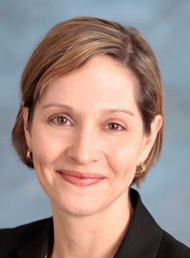
Improving employee benefits was the “primary driver” behind Facebook’s decision to form a captive, according to Janaize Markland, director of business risk and insurance.
“Because Facebook is obviously a global company with employees in a lot of different regions, there are a variety of different employee benefits that are available, and they’re not consistent from region to region,” Markland said in an exclusive interview on GCP #51.
“The idea was to be able to enhance benefits in some areas, to offer coverages that we wanted to, that maybe weren’t necessarily available in the commercial market.”
Markland added that Facebook has three goals for the captive. “One is to be solvent, the second one is to be efficient, and the third one is to be helpful.”
At the time of the interview she they had selected its fronting partner and started to negotiate individual contracts for the captive. “We’re about to place the first one”, she added.
However, Markland said that the company was having a second look at some of the contracts for life and accident & disability insurance. Prior to Covid-19 these had been viewed as a “safe bet”, but there was now an “extra layer of uncertainty”.
“We’re a little concerned that we don’t want to end up having to ask our CFO for additional cash in the first year of operations after convincing him that it was a good idea to do it the first place,” she said.
Facebook wrote its first policy through its captive in December 2020, which was a small excess property policy for existing coverage.
Markland revealed that when she first joined Facebook, she said that theoretically, her first question was: “Why do we have insurance at all?”
However, she noted that although the company has a very strong balance sheet, and a very good risk profile, when it comes to assessing the company’s different exposures, there’s “not much experience in terms of claims”.
She noted that Facebook could take more risk going forward, but it needed to be careful and thoughtful about the most efficient ways to handle its risk transfer needs.
Markland said the company was still interested in transferring risk into the commercial market if and when it’s efficient. “And if it’s not, that’s where our captive can play a role,” she said.



